World
Top 10 international news stories of 2021
Out Olympians, conversion therapy bans, Polish crackdown
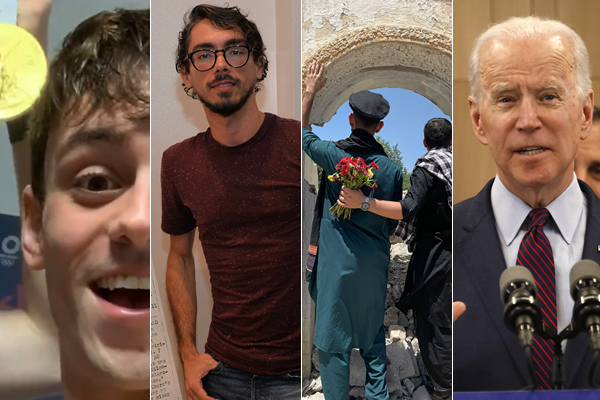
The Biden administration’s pledge to champion LGBTQ rights abroad was the dominant international story in 2021, but anti-LGBTQ crackdowns and efforts to expand rights also made headlines around the world over the past year. Here are the top 10 international stories of 2021.
#10: Botswana Court of Appeals decriminalizes same-sex sexual relations
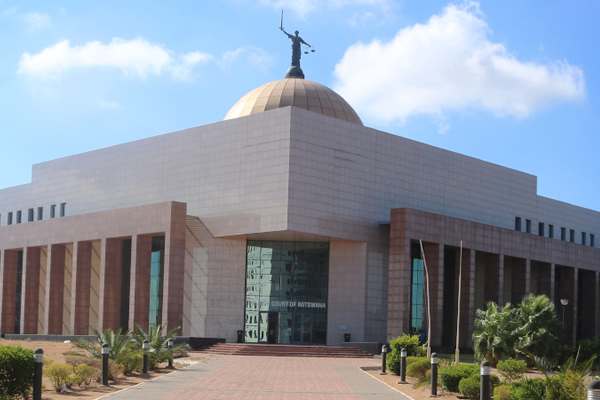
The Botswana Court of Appeals on Nov. 29 upheld a ruling that decriminalized consensual same-sex sexual relations in the country.
Lesbians, Gays and Bisexuals of Botswana (LEGABIBO) challenged the colonial-era criminalization law.
Botswana’s High Court in 2019 unanimously ruled the law was unconstitutional. The Batswana government appealed the decision.
“Today is a momentous day in history, a victorious win in ascertaining liberty, privacy and dignity of the LGBTIQ persons in Botswana and definitely, this judgement sets precedence for the world at large,” said LEGABIBO CEO Thato Moruti after the Court of Appeals ruling.
#9: LGBTQ athletes compete in Summer Olympics

A record number of openly LGBTQ athletes competed in the Summer Olympics in Tokyo.
Laurel Hubbard, a weightlifter from New Zealand, became the first out trans person to compete in any Olympics. Quinn, a non-binary trans person who is a member of the Canadian women’s soccer team, won an Olympic gold medal.
Tom Daley, a British Olympic diver who is married to Dustin Lance Black, also medaled during the games.
#8: LGBTQ activists, journalists arrested in Cuba
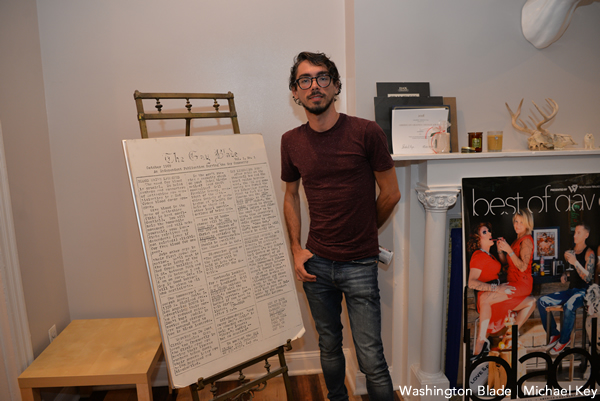
LGBTQ activists and journalists were among the hundreds of people who were arrested during anti-government protests in Cuba on July 11.
Maykel González Vivero, director of Tremenda Nota, the Washington Blade’s media partner in Cuba, was violently arrested near Havana’s Revolution Square during one of the protests.
Yoan de la Cruz, a gay man who live-streamed the first protest that took place in San Antonio de los Baños, remains in custody. He faces an 8-year prison sentence.
The protests took place against the backdrop of mounting food shortages, a worsening economic crisis, human rights abuses and criticism over the government’s response to the pandemic. Thousands of Cuban Americans on July 26 marched to the Cuban Embassy in D.C. in support of the protesters.
#7: Gay Games in Hong Kong remain in doubt

The 2023 Gay Games that are scheduled to take place in Hong Kong remain in doubt amid growing concerns over China’s human rights record.
Gay Games Hong Kong in September postponed the event until 2023 because of the pandemic.
Hong Kong’s National Security Law, which human rights activists say makes it easier for authorities to punish anyone in the former British colony who challenges the Chinese government, took effect in 2020. Upwards of 2 million Hong Kongers took part in pro-democracy protests the year before.
The Women’s Tennis Association has suspended tournaments in Hong Kong and throughout China in response to the disappearance of Peng Shuai, a Chinese tennis star, after she publicly accused former Vice Premier Zhang Gaoli of sexual assault. Diplomats from the U.S. and other countries will also boycott the 2022 Winter Olympics in Beijing.
“The Federation of Gay Games continues to monitor the situation in Hong Kong regarding COVID-19, the National Security Law and all other aspects that affect the safety and security of our event,” Sean Fitzgerald, co-president of the Federation of Gay Games, told the Blade in a statement after the Women’s Tennis Association announced it had suspended all of its tournaments in China. “We are committed to hosting Gay Games 11 in Hong Kong in November 2023.”
#6: Anti-LGBTQ crackdowns continue in Hungary, Poland
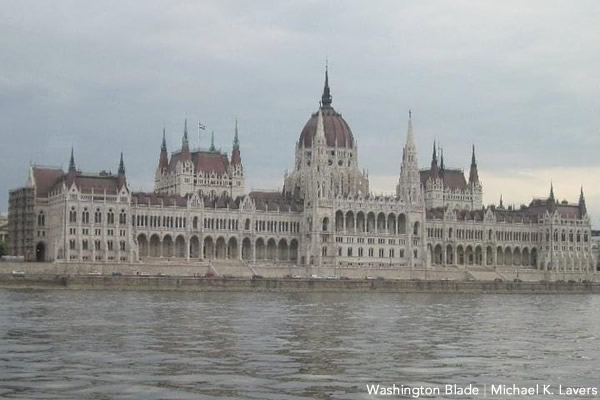
The governments of Hungary and Poland in 2021 continued their anti-LGBTQ crackdowns.
The European Commission in July announced legal action against Hungary after a law that bans the promotion of homosexuality and sex-reassignment surgery to minors took effect. Hungarian lawmakers in November approved a resolution that paves the way for a referendum on LGBTQ issues.
The European Commission in September threatened to withhold funds from five Polish provinces that have enacted so-called LGBTQ “free zones.” Polish lawmakers have also sought to ban Pride marches and other pro-LGBTQ events.
#5: LGBTQ candidates elected throughout the world
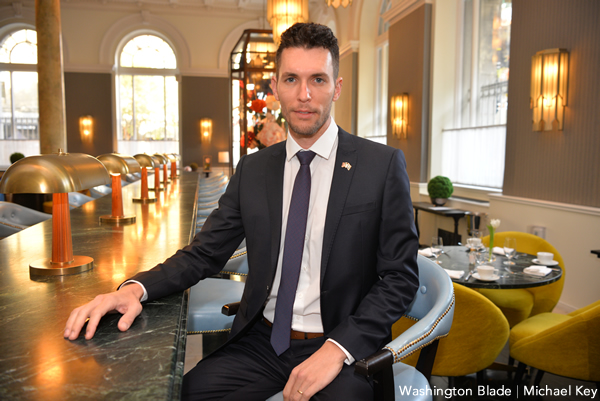
LGBTQ candidates won elections throughout the world in 2021.
Two transgender women — Tessa Ganserer and Nyke Slawik — won seats in the German Parliament in September. Emilia Schneider in November became the first openly trans person elected to the Chilean congress.
Victor Grajeda in November became the first openly gay man to win a seat in the Honduran congress.
Openly gay Deputy Israeli Foreign Minister Idan Roll is the youngest person in his country’s new government that formed in June after long-time Prime Minister Benjamin Netanyahu’s ouster. Israeli Health Minister Nitzan Horowitz is also openly gay.
#4: Efforts to ban conversion therapy gain traction
More countries moved to ban so-called conversion therapy in 2021.
A Canadian law that prohibits the widely discredited practice in the country will take effect in January.
French lawmakers on Dec. 15 approved a bill that would ban conversion therapy in their country.
Measures to prohibit conversion therapy are also before legislators in Finland and New Zealand. The British Parliament in 2022 is expected to debate a bill that would ban conversion therapy in England and Wales.
Brazil and Malta are two of the countries that already ban conversion therapy.
#3: VP Harris acknowledges anti-LGBTQ violence as cause of migration
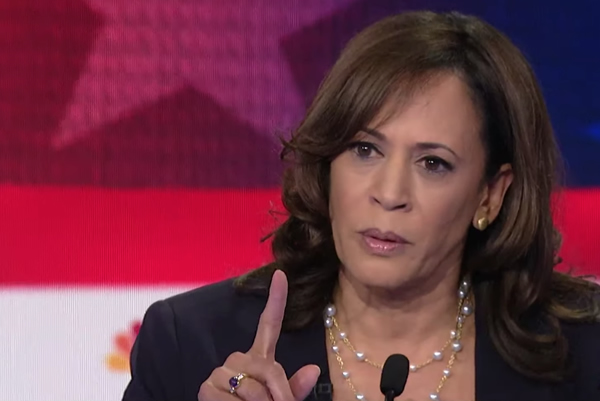
Vice President Kamala Harris throughout 2021 acknowledged that anti-LGBTQ violence is one of the “root causes” of migration from Central America.
Harris in June raised the issue during a meeting with Visibles Executive Director Daniel Villatoro, Ingrid Gamboa of the Association of Garifuna Women Living with HIV/AIDS and other Guatemalan civil society members that took place in Guatemala City. State Department spokesperson Ned Price, who is openly gay, a few weeks earlier told the Blade that protecting LGBTQ migrants and asylum seekers is one of the Biden administration’s global LGBTQ rights priorities.
Immigrant rights activists who remain critical of the Biden administration’s immigration policy note Title 42, a Centers for Disease Control and Prevention rule that closed the Southern border to most asylum seekers and migrants because of the coronavirus pandemic, remains in place. The so-called Remain in Mexico policy that forces asylum seekers to pursue their cases in Mexico has also been reinstated under a court order.
“To be a trans person is synonymous with teasing, harassment, violence and even death,” Venus, a transgender woman from La Ceiba, Honduras, told the Blade in July during an interview in the city.
#2: LGBTQ Afghans desperate to flee after Taliban regains control
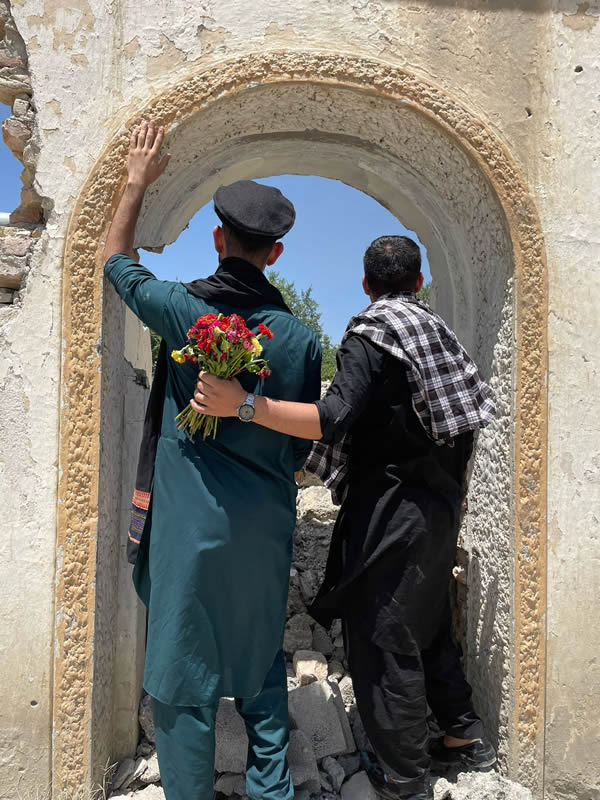
LGBTQ Afghans remain desperate to flee after the Taliban regained control of the country on Aug. 15.
Two groups of LGBTQ Afghans that Stonewall, Rainbow Railroad and Micro Rainbow evacuated with the help of the British government arrived in the U.K. in the fall. Some of the Afghan human rights activists who Taylor Hirschberg, a researcher at the Columbia Mailman School of Public Health who is also a Hearst Foundation scholar, has been able to help leave the country since the Taliban regained control of it are LGBTQ.
A Taliban judge in July said the group would once again execute gay people if it were to return to power in Afghanistan. Rainbow Railroad and Immigration Equality are among the groups that continue to urge the Biden administration to do more to help LGBTQ Afghans who remain inside the country.
#1: Biden commits U.S. to promoting LGBTQ rights abroad
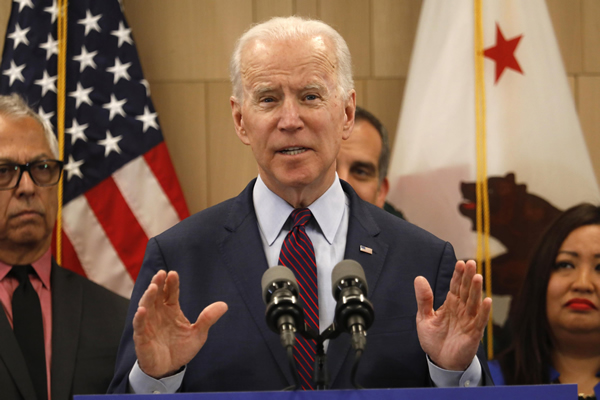
The Biden administration in February issued a memorandum that committed the U.S. to promoting LGBTQ rights abroad.
State Department spokesperson Ned Price, who is gay, in May told the Washington Blade the decriminalization of consensual same-sex sexual relations is one of the five global LGBTQ rights priorities for the Biden administration.
The White House in June named then-OutRight Action International Executive Director Jessica Stern as the next special U.S. envoy for the promotion of LGBTQ rights abroad. The State Department in October announced it would issue passports with an “X” gender marker.
India
Anaya Bangar challenges ban on trans women in female cricket teams
Former Indian cricketer Sanjay Bangar’s daughter has received support

Anaya Bangar, the daughter of former Indian cricketer Sanjay Bangar, has partnered with the Manchester Metropolitan University Institute of Sport in the U.K. to assess her physiological profile following her gender-affirming surgery and undergoing hormone replacement therapy.
From January to March 2025, the 23-year-old underwent an eight-week research project that measured her glucose levels, oxygen uptake, muscle mass, strength, and endurance after extensive training.
The results, shared via Instagram, revealed her metrics align with those of cisgender female athletes, positioning her as eligible for women’s cricket under current scientific standards. Bangar’s findings challenge the International Cricket Council’s 2023 ban on transgender athletes in women’s cricket, prompting her to call for a science-based dialogue with the Board of Control for Cricket in India and the ICC to reform policies for transgender inclusion.
“I am talking with scientific evidence in my hand,” Bangar said in an interview posted to her Instagram page. “So, I hope, this makes an impact and I will be hoping to BCCI and ICC talking with me and discussing this further.”
On Nov. 21, 2023, the ICC enacted a controversial policy barring trans women from international women’s cricket. Finalized after a board meeting in Ahmedabad, India, the regulation prohibits any trans player who has experienced male puberty from competing, irrespective of gender-affirming surgery or hormone therapy. Developed through a 9-month consultation led by the ICC’s Medical Advisory Committee, the rule aims to safeguard the “integrity, safety, and fairness” of women’s cricket but has drawn criticism for excluding athletes like Canada’s Danielle McGahey, the first trans woman to play internationally. The policy, which allows domestic boards to set their own rules, is slated for review by November 2025.
Bangar shared a document on social media verifying her participation in a physiological study at the Manchester Metropolitan University Institute of Sport, conducted from Jan. 20 to March 3, 2025, focused on cricket performance. The report confirmed that her vital metrics — including haemoglobin, blood glucose, peak power, and mean power — aligned with those of cisgender female athletes. Initially, her fasting blood glucose measured 6.1 mmol/L, slightly above the typical non-diabetic range of 4.0–5.9 mmol/L, but subsequent tests showed it normalized, reinforcing the study’s findings that her physical profile meets female athletic standards.
“I am submitting this to the BCCI and ICC, with full transparency and hope,” said Bangar. “My only intention is to start a conversation based on facts not fear. To build space, not divide it.”
In a letter to the BCCI and the ICC, Bangar emphasized her test results from the Manchester Metropolitan University study. She explained that the research aimed to assess how hormone therapy had influenced her strength, stamina, haemoglobin, glucose levels, and overall performance, benchmarked directly against cisgender female athletic standards.
Bangar’s letter to the BCCI and the ICC clarified the Manchester study was not intended as a political statement but as a catalyst for a science-driven dialogue on fairness and inclusion in cricket. She emphasized the importance of prioritizing empirical data over assumptions to shape equitable policies for trans athletes in the sport.
Bangar urged the BCCI, the world’s most influential cricket authority, to initiate a formal dialogue on trans women’s inclusion in women’s cricket, rooted in medical science, performance metrics, and ethical fairness. She called for the exploration of eligibility pathways based on sport-specific criteria, such as haemoglobin thresholds, testosterone suppression timelines, and standardized performance testing. Additionally, she advocated for collaboration with experts, athletes, and legal advisors to develop policies that balance inclusivity with competitive integrity.
“I am releasing my report and story publicly not for sympathy, but for truth. Because inclusion does not mean ignoring fairness, it means measuring it, transparently and responsibly,” said Bangar in a letter to the BCCI. “I would deeply appreciate the opportunity to meet with you or a representative of the BCCI or ICC to present my findings, discuss possible policy pathways, and work towards a future where every athlete is evaluated based on real data, not outdated perceptions.”
Before her transition, Bangar competed for Islam Gymkhana in Mumbai and Hinckley Cricket Club in the U.K., showcasing her talent in domestic cricket circuits. Her father, Sanjay Bangar, was a dependable all-rounder for the Indian national cricket team from 2001 to 2004, playing 12 test matches and 15 One Day Internationals. He later served as a batting coach for the Indian team from 2014 to 2019, contributing to its strategic development.
Cricket in India is a cultural phenomenon, commanding a fanbase of more than 1 billion, with more than 80 percent of global cricket viewership originating from the country.
The International Cricket Council, the sport’s governing body, oversees 12 full member nations and more than 90 associate members, with the U.S. recently gaining associate member status in 2019 and co-hosting the 2024 ICC Men’s T20 World Cup. The BCCI generated approximately $2.25 billion in revenue in the 2023–24 financial year, primarily from the Indian Premier League, bilateral series, and ICC revenue sharing. The ICC earns over $3 billion from media rights in India alone for the 2024–27 cycle, contributing nearly 90 percent of its global media rights revenue, with the BCCI receiving 38.5 percent of the ICC’s annual earnings, approximately $231 million per year.
Women’s cricket in India enjoys a growing fanbase, with over 300 million viewers for the Women’s Premier League in 2024, making it a significant driver of the sport’s global popularity. The International Cricket Council oversees women’s cricket in 12 full member nations and over 90 associate members, with the U.S. fielding a women’s team since gaining associate status in 2019 and competing in ICC events like the 2024 Women’s T20 World Cup qualifiers. The BCCI invests heavily in women’s cricket, allocating approximately $60 million annually to the WPL and domestic programs in 2024–25, while contributing to the ICC’s $20 million budget for women’s cricket development globally. India’s media market for women’s cricket, including WPL broadcasting rights, generated $120 million in 2024, accounting for over 50 percent of the ICC’s women’s cricket media revenue.
“As a woman, I feel when someone says that they are women, then they are, be trans or cis. A trans woman is definitely the same as a cis woman emotionally and in vitals, and specially, when someone is on hormone replacement therapy. Stopping Anaya Bangar from playing is discrimination and violation of her rights. It is really sad and painful that every transwoman need to fight and prove their identity everywhere,” said Indrani Chakraborty, an LGBTQ rights activist and a mother of a trans woman. “If ICC and BCCI is stopping her from playing for being transgender, then I will say this to be their lack of awareness and of course the social mindsets which deny acceptance.”
Chakraborty told the Blade that Bangar is an asset, no matter what. She said that the women’s cricket team will only benefit by participation, but the discriminating policies are the hindrance.
“Actually the transgender community face such discrimination in every sphere. In spite of being potent, they face rejection. This is highly inhuman. These attitudes is regressive and will never let to prosper. Are we really in 2025?,” said Chakraborty. “We, our mindset and the society are the issues. We, as a whole, need to get aware and have to come together for getting justice for Anaya. If today, we remain silent, the entire community will be oppressed. Proper knowledge of gender issues need to be understood.”
The BCCI and the International Cricket Council have not responded to the Blade’s repeated requests for comment.
El Salvador
La marcha LGBTQ desafía el silencio en El Salvador
Se realizó el evento en San Salvador bajo la lluvia, pero con orgullo

SAN SALVADOR, El Salvador — El reloj marcaba el mediodía cuando los primeros colores del arcoíris comenzaron a ondear frente a la emblemática Plaza del Divino Salvador del Mundo. A pesar de la incertidumbre generada en redes sociales, donde abundaban los rumores sobre una posible cancelación de la marcha por la diversidad sexual, la ciudad capital comenzaba a llenarse de esperanza, de resistencia y de orgullo.
Este año, la Marcha del Orgullo LGBTQ+ en El Salvador se desarrolló en un contexto tenso, en medio de un clima político que reprime y silencia a las voces disidentes.
“Aunque las estadísticas digan que no existimos, viviendo en El Salvador, un país donde hoy, después de décadas de avances, defender los derechos humanos es de nuevo una causa perseguida, criminalizada y silenciada”, afirmaron representantes de la Federación Salvadoreña LGBTQ+.
A pesar de la cancelación del festival cultural que usualmente acompaña la marcha, los colectivos decidieron seguir adelante con la movilización, priorizando el sentido original de la actividad: salir a las calles para visibilizarse, exigir respeto a sus derechos y recordar a quienes ya no están.
A la 1:30 p.m., una fuerte lluvia comenzó a caer sobre la ciudad. Algunas de las personas presentes corrieron a refugiarse, mientras otras, debajo de sombrillas y de los escasos árboles en la plaza, decidieron mantenerse firmes. Los comentarios pesimistas no se hicieron esperar: “a lo mejor la cancelan por el clima”, “no se ve tanta gente como otros años”. Sin embargo, lo que siguió fue una muestra de resistencia: a las 2:05 p.m. las voces comenzaron a llamar a tomar las calles.
Visibilidad como resistencia
La marcha arrancó bajo una llovizna persistente. La Avenida Roosevelt y la Alameda Juan Pablo II se tiñeron de colores con banderas arcoíris, trans, lésbicas, bisexuales y otras que representan a los diversos sectores de la población LGBTQ. Cada bandera alzada fue un acto político, cada paso una declaración de existencia.
Desde la Plaza del Divino Salvador del Mundo hasta la Plaza Gerardo Barrios, frente a Catedral Metropolitana y el Palacio Nacional, la marcha se convirtió en un carnaval de dignidad. Carteles con frases como “El amor no se reprime”, “Mi existencia no es delito” o “Marcho por quien ya no puede hacerlo” se alzaron entre las multitudes.
La movilización fue también un espacio para recordar a quienes han perdido la vida por la discriminación y el rechazo. Familias que marcharon por hijos, hijas o amigues que se suicidaron a causa del estigma. Personas que caminaron por quienes aún viven en el miedo, por quienes no pudieron salir del clóset, por quienes se han ido del país huyendo de la violencia.
Arte, fe y rebeldía
Una de las escenas más llamativas fue protagonizada por Nelson Valle, un joven gay que marchó vestido como sacerdote.
“Hay muchas personas que secretamente asisten a ritos religiosos como en Semana Santa, y les gusta vivir en lo oculto. Pero la fe debe ser algo libre porque Dios es amor y es para todos”, dijo.
Valle utilizó su vestimenta como una forma de protesta contra las estructuras religiosas que aún condenan la diversidad sexual.
“Un ejemplo de persona que abrió el diálogo del respeto fue el papa Francisco, abrió la mente y muy adelantado a su tiempo, porque dejó claro que hay que escuchar a toda persona que quiere encontrar a Dios”, agregó.
La marcha también incluyó bandas musicales, grupos de cachiporristas, carrozas artísticas, colectivos provenientes de distintos puntos del país, y manifestaciones de orgullo en todas sus formas. Fue un mosaico cultural que mostró la riqueza y diversidad de la población LGBTQ en El Salvador.

Una lucha que persiste
Las organizaciones presentes coincidieron en su mensaje: la lucha por la igualdad y el reconocimiento no se detiene, a pesar de los intentos del Estado por invisibilizarlos.
“Nuestros cuerpos se niegan a ser borrados y a morir en la invisibilidad de registros que no guardan nuestros nombres ni nuestros géneros”, declararon representantes de la Federación.
Además, agregaron: “Desde este país que nos quiere callar, levantamos nuestras voces: ¡La comunidad LGBTIQ+ no se borra! ¡El Salvador también es nuestro! Construyamos, entre todes, un país donde podamos vivir con Orgullo.”
El ambiente fue de respeto, pero también de desconfianza. La presencia de agentes policiales no pasó desapercibida. Aunque no hubo reportes oficiales de violencia, varias personas expresaron su temor por posibles represalias.
“Marchar hoy es también un acto de valentía”, comentó Alejandra, una joven lesbiana que viajó desde Santa Ana para participar. “Pero tenemos derecho a vivir, a amar, a soñar. Y si nos detenemos, les damos la razón a quienes nos quieren ver en silencio.”
Rumbo al futuro
Concluida la marcha frente a Catedral y el Palacio Nacional, muchas personas permanecieron en la plaza compartiendo abrazos, fotos y palabras de aliento. No hubo festival, no hubo escenario, pero hubo algo más valioso: una comunidad que sigue viva, que sigue resistiendo.
Los retos son muchos: falta de leyes de protección y que apoye las identidades de las personas trans, discriminación laboral, violencia por prejuicio, rechazo familiar, y una narrativa estatal que pretende que no existen. Pero la marcha del 28 de junio demostró que, aunque el camino sea cuesta arriba, la dignidad y el orgullo no se borran.
La lucha por un El Salvador más justo, más plural y más inclusivo continúa. En palabras de uno de los carteles más llamativos de ese día: “No estamos aquí para pedir permiso, estamos aquí para recordar que también somos parte de este país”.
Hungary
Upwards of 100K people march in Budapest Pride
Participants defined Hungarian government’s ban on public LGBTQ events
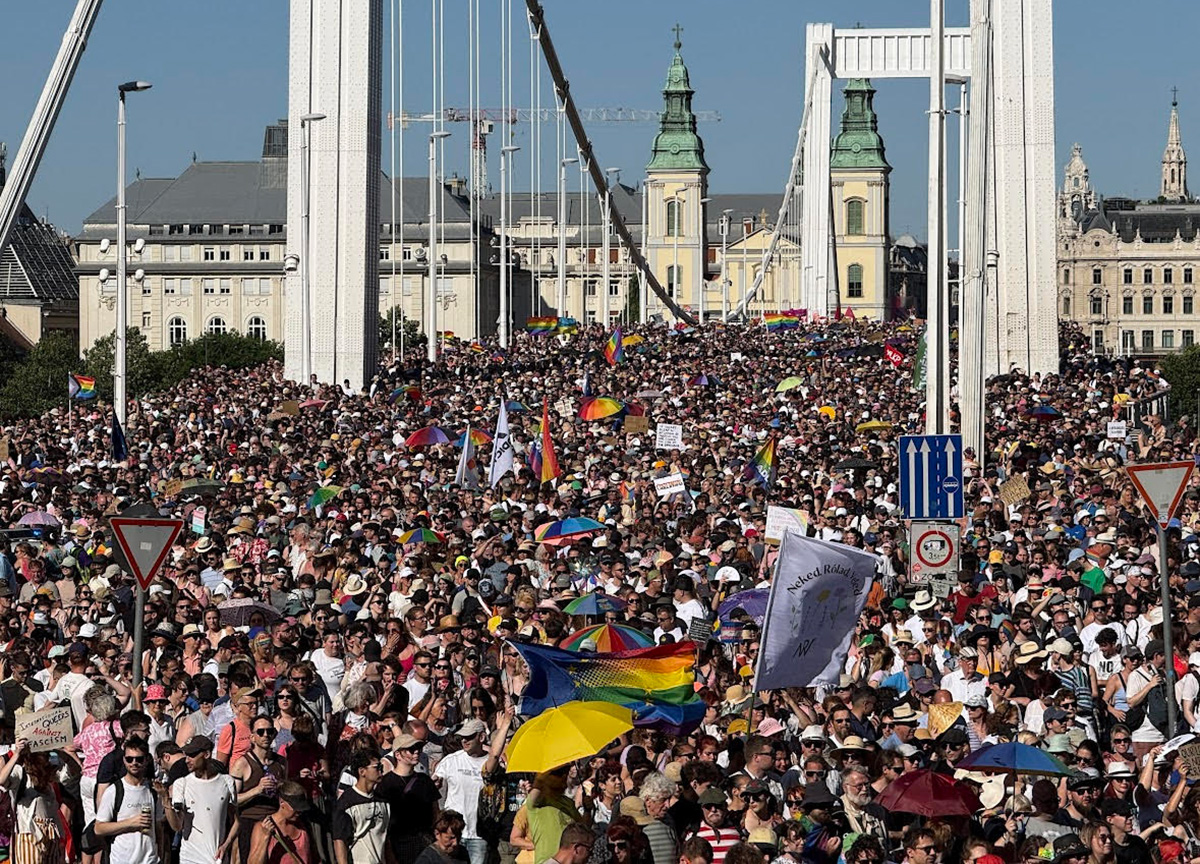
More than 100,000 people on Saturday defied the Hungarian government’s ban on public LGBTQ events and participated in the 30th annual Budapest Pride parade.
The New York Times published a picture that shows throngs of people marching on Budapest’s Erzsébet Bridge over the Danube River. Openly gay MEP Krzysztof Śmiszek, who was previously Poland’s deputy justice minister, is among the dozens of European lawmakers who participated in the march that began at Budapest City Hall.
The New York Times reported Hungarian police officers stood along the march, but they did not try to stop it. Śmiszek described the march to the Washington Blade as “beautiful and huge.”
“[It was] very peaceful and political,” he said.
Prime Minister Viktor Orbán and his Fidesz-KDNP coalition government have faced widespread criticism over its anti-LGBTQ crackdown.
Hungarian lawmakers in March passed a bill that bans Pride events and allow authorities to use facial recognition technology to identify those who participate in them. MPs in April amended the Hungarian constitution to ban public LGBTQ events.
Budapest Mayor Gergely Karácsony endorsed the march, even though Orbán’s government threatened to arrest him and fine participants.
“Today a country shows that no ruling party can tell it on what topic, for what cause it is allowed to march and why not,” said Budapest Pride President Viktória Radványi on Saturday in a Facebook post. “A country demonstrates that whoever will be in government can count on us: dedicated, persistent citizens intolerant to oppression, who will organize themselves and stand against tyranny with their heads held high.”
More than two dozen activists in D.C. who protested outside the Hungarian Embassy on Friday expressed their support for Budapest Pride.
(Washington Blade video by Michael K. Lavers)
-

 U.S. Supreme Court4 days ago
U.S. Supreme Court4 days agoSupreme Court upholds ACA rule that makes PrEP, other preventative care free
-

 U.S. Supreme Court4 days ago
U.S. Supreme Court4 days agoSupreme Court rules parents must have option to opt children out of LGBTQ-specific lessons
-

 Congress5 days ago
Congress5 days agoSenate parliamentarian orders removal of gender-affirming care ban from GOP reconciliation bill
-

 Opinions5 days ago
Opinions5 days agoMy heart goes out to trans community and their families












